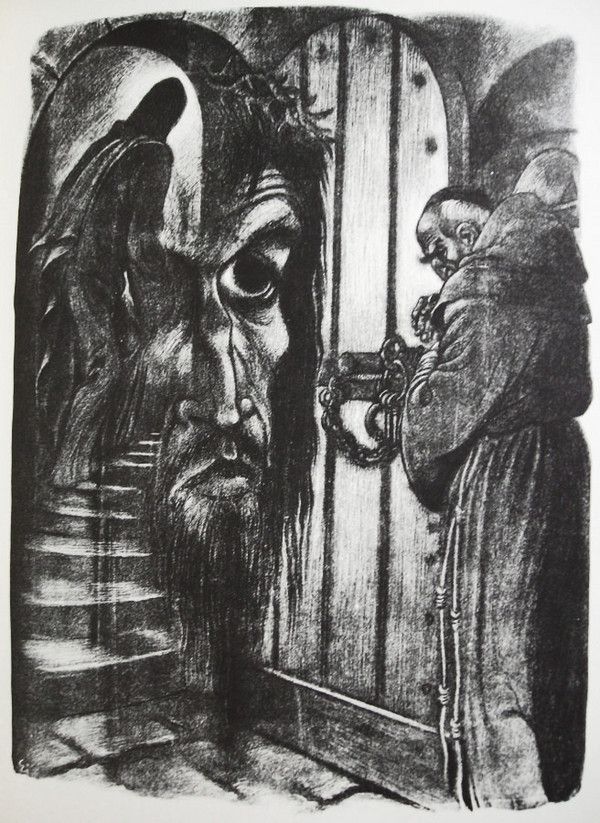“The Lover of Mankind on the eve of His Crucifixion said: ‘I am the Good Shepherd. The good shepherd lays down his life for his sheep, so that not one of them might be lost.’ Let not a man’s soul be lost through us!
“I asked just now what does ‘father’ mean, and exclaimed that it was a great word, a precious name. But one must use words honestly, gentlemen, and I venture to call things by their right names: such a father as old Karamazov cannot be called a father and does not deserve to be. Filial love for an unworthy father is an absurdity, an impossibility. Love cannot be created from nothing: only God can create something from nothing.
‘Fathers, provoke not your children to wrath,’ the apostle writes, from a heart glowing with love. It’s not for the sake of my client that I quote these sacred words, I mention them for all fathers. Who has authorized me to preach to fathers? No one. But as a man and a citizen I make my appeal. We are not long on earth, we do many evil deeds and say many evil words. So let us all catch a favorable moment when we are all together to say a good word to each other. That’s what I am doing: while I am in this place I take advantage of my opportunity. Not for nothing is this tribune given us by the highest authority—all Russia hears us! I am not speaking only for the fathers here present, I cry aloud to all fathers: ‘Fathers, provoke not your children to wrath.’ Yes, let us first fulfill Christ’s injunction ourselves and only then venture to expect it of our children. Otherwise we are not fathers, but enemies of our children, and they are not our children, but our enemies, and we have made them our enemies ourselves. ‘What measure ye mete it shall be measured unto you again’—it’s not I who say that, it’s the Gospel precept, measure to others according as they measure to you. How can we blame children if they measure us according to our measure?
“Not long ago a servant girl in Finland was suspected of having secretly given birth to a child. She was watched, and a box of which no one knew anything was found in the corner of the loft, behind some bricks. It was opened and inside was found the body of a new‐born child which she had killed. In the same box were found the skeletons of two other babies which, according to her own confession, she had killed at the moment of their birth.
“Gentlemen of the jury, was she a mother to her children? She gave birth to them, indeed; but was she a mother to them? Would any one venture to give her the sacred name of mother? Let us be bold, gentlemen, let us be audacious even: it’s our duty to be so at this moment and not to be afraid of certain words and ideas like the Moscow women in Ostrovsky’s play, who are scared at the sound of certain words. No, let us prove that the progress of the last few years has touched even us, and let us say plainly, the father is not merely he who begets the child, but he who begets it and does his duty by it.
“Oh, of course, there is the other meaning, there is the other interpretation of the word ‘father,’ which insists that any father, even though he be a monster, even though he be the enemy of his children, still remains my father simply because he begot me. But this is, so to say, the mystical meaning which I cannot comprehend with my intellect, but can only accept by faith, or, better to say, like many other things which I do not understand, but which religion bids me believe. But in that case let it be kept outside the sphere of actual life. In the sphere of actual life, which has, indeed, its own rights, but also lays upon us great duties and obligations, in that sphere, if we want to be humane—Christian, in fact—we must, or ought to, act only upon convictions justified by reason and experience, which have been passed through the crucible of analysis; in a word, we must act rationally, and not as though in dream and delirium, that we may not do harm, that we may not ill‐treat and ruin a man. Then it will be real Christian work, not only mystic, but rational and philanthropic…”
“The Brother Karamazov” Fyodor Dostoyevsky


